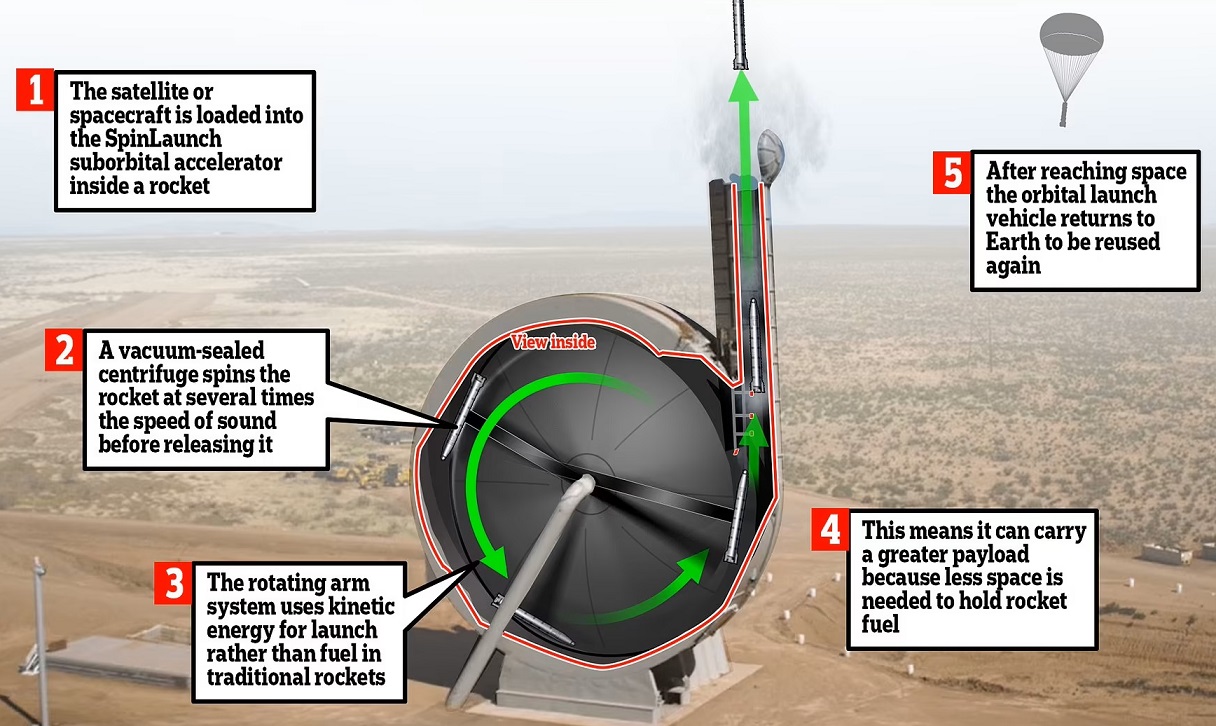[video] How rockets can be launched into space without fuel
The Californian company SpinLaunch, founded in 2014, has developed a platform that delivers small satellites into space using kinetic force. It involves a centrifuge 33 meters in diameter, with a rotating arm in vacuum, which accelerates and launches 3-meter-long rockets vertically.
The rockets launched into the air develop a speed of 7,600 km/hour (2 km/sec) and only start their engines when they reach an altitude of 60 km, achieving a suborbital speed of 17,150 km/hour.
According to company representatives, it is currently the cheapest and fastest method of launching payloads into space with minimal environmental damage.

After a series of test launches from the Spaceport America in New Mexico in 2021-22, SpinLaunch has attracted the attention of the US aerospace industry, the Department of Defense, the Department of Homeland Security, and NASA.
Its innovation-based successes have also brought the company $150 million in funding from investors, including Kleiner Perkins, Google Ventures, Airbus Ventures, ATW Partners, Catapult Ventures, Starlight Ventures, Lauder Partners, ONA Capital, John Doerr, and the Byers family.
The most recent launch was on 27 September 2022, when the projectile pushed various payloads from NASA, Airbus, Cornell University, and Outpost Space, a satellite manufacturer, into low orbit (below 1,000 km).
In March, the company's founder, Jonathan Yaney, announced that the acceleration system would be upgraded to launch 200 kg satellites at a speed of 8,000 km/hour to an altitude between 50 and 70 km. According to the entrepreneur, the system proposed by SpinLaunch can reduce the cost of launching payloads into space 10-fold, with fuel consumption at -70% compared to usual cases. Additionally, a single centrifuge is capable of performing 5 launches per day.
Although the centrifuge idea seems competitive, the company still needs to find answers to a series of questions before commercializing its potential.
A major challenge is the normal functioning of the rocket engine ignition system that propels the rocket into the upper layers of the atmosphere.
The main risk, however, concerns the survival of sensitive payloads exposed to G-forces during rotation and launch, which is 10,000 times greater than Earth's gravity.
SpinLaunch, based in Long Beach, has a team of 200 specialists, including engineers "stolen" from NASA and other companies.







